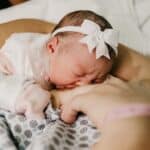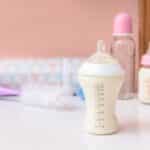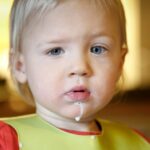Parents want to keep their babies out of harm’s way at all times and want to protect them as best they can. Weaning can be a nerve-wracking time for new parents, you may be anxious and worried about choking or allergies or creating unhealthy habits.
Weaning doesn’t have to be scary, introducing solid food can in fact be a fun and exciting time for you and your baby.
However, you do need to approach weaning with a certain level of caution and it is important parents do not feed their baby honey before they are 12 months of age.
Read on to find out why babies can’t have honey and to learn what to do if you accidentally gave your baby honey.
Babies should not eat honey before their first birthday as it can cause a serious illness, Infant Botulism. If you accidentally gave your baby honey you must monitor them closely for signs of Infant Botulism over the next 18-36 hours.
Infant Botulism can cause your baby to experience a loss of head control and a loss of appetite.
If your baby has developed Infant Botulism they may struggle to breathe, have a weak cry, and experience muscle weakness. Infant Botulism is a serious illness and babies will often require medical treatment in hospital.
Why Can’t Babies Have Honey?
If you are a parent you have probably been told by your mom friends or your pediatrician, or maybe even read online that you can’t give your baby honey.
It is unlikely you were planning to introduce honey to your baby as soon as you started weaning, but you may have considered using it to sweeten their oatmeal or using it instead of syrup on their pancakes.
Giving a baby honey can be really dangerous as babies who consume honey may develop the potentially life-threatening illness, Infant Botulism.
What Is Infant Botulism
Botulism is a very rare but life-threatening condition that is caused by toxins produced by the Clostridium Botulinum bacteria.
These toxins are some of the most powerful currently known to science and can cause a range of serious and potentially life-threatening symptoms. The toxins that cause Botulism attack a person’s nervous system and can also cause muscle paralysis.
Infant Botulism is the medical term to refer to a case of Botulism in a child under 12 months of age, Infant Botulism is extremely rare and approximately only 250 babies a year in the USA are diagnosed with the illness.
Out of these 250 cases, approximately 15% are the result of honey consumption (the remaining cases are likely to be the result of an infant consuming contaminated soil).
Although Infant Botulism is rare, C. botulinum spores have been found in approximately 25% of honey products.
Due to the fact, your average parent in the store has no idea if the honey there are purchasing is contaminated with these harmful spores, parents are advised to be cautious and avoid giving their baby honey until they are over one year old.
View in gallery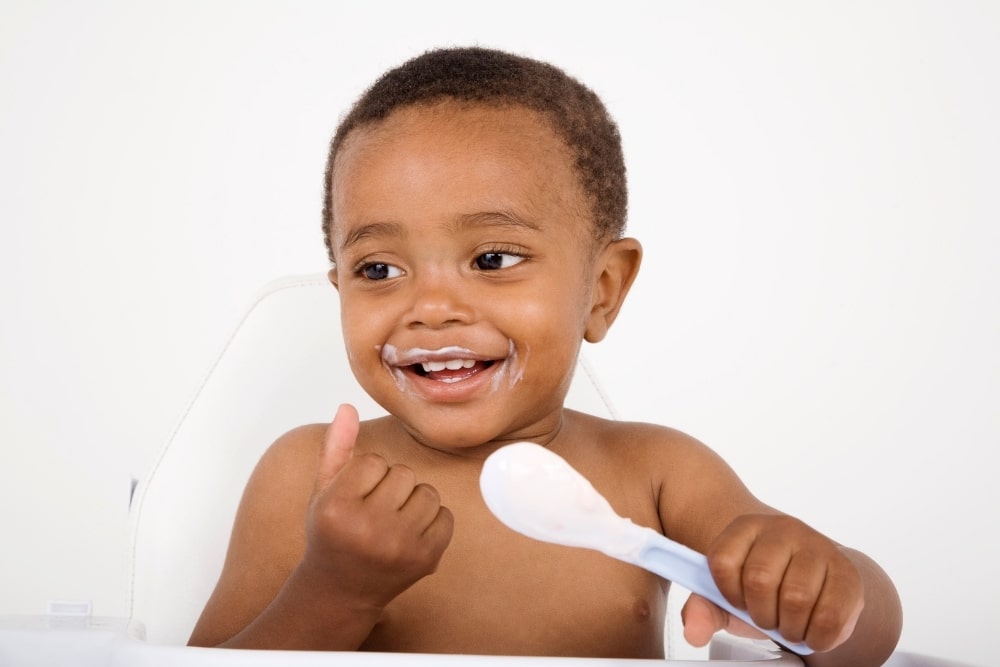
What Do I Do If My Baby Has Had Honey?
As you can see, giving your baby honey is pretty risky. Although cases of infant botulism are rare, the condition can be life-threatening if not diagnosed and treated quickly.
The CDC advises that children under 12 months of age should not be given honey, the risk of Infant Botulism is small but the damage caused can be huge.
However, accidents happen. There is a lot to remember when it comes to weaning and you may accidentally feed your baby food that has honey on it or has been cooked with honey.
If you have accidentally fed your baby honey, here is our advice:
Don’t panic
The first thing you need to do is remain calm. Nothing bad is going to happen to your baby right now, even if they do have Infant Botulism the symptoms can take hours or even days to appear.
You need to try not to panic and start arming yourself with potentially life-saving knowledge.
Stop feeding your baby the food containing honey
Whether it is honey-glazed carrots or a slice of toast, take the food away from them and offer them something else. The less honey your baby eats, the less likely they are to consume potentially contaminated spores.
Monitor your baby for signs of an allergic reaction
Honey allergy is rare but is still something parents need to be made aware of. An allergic reaction to honey is usually caused by the pollen it is made from, rather than the honey itself.
Nevertheless, there is a risk of an allergic reaction and you should monitor your baby closely if they accidentally eat honey.
Monitor your baby for signs of Infant Botulism
The most important thing you need to do is keep a very close eye on your baby over the following hours and days. Symptoms of Infant Botulism can take up to 36 hours to show themselves so it is important to monitor your baby closely and seek immediate medical attention if needed.
Signs and Symptoms Of Infant Botulism
View in gallery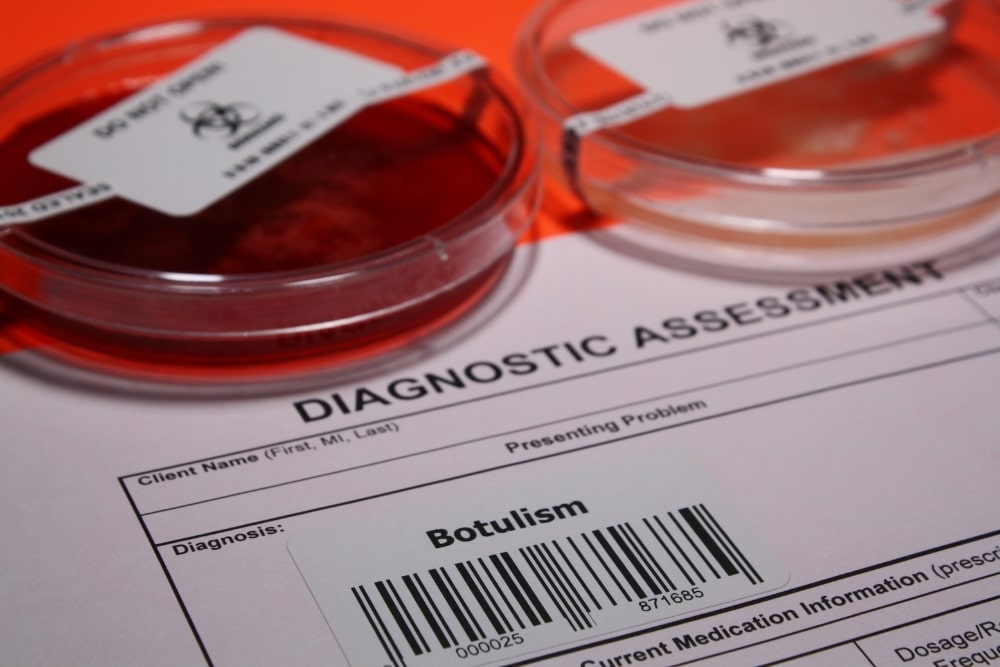
Infant Botulism can cause several serious symptoms. It is important that every parent is aware of the signs of infant botulism, especially if you have accidentally fed your baby honey.
Here is a list of Infant Botulism symptoms:
- Breathing difficulties
- Drooping eyelids
- Blurred or double vision
- Difficulty feeding
- Loss of appetite
- Loss of head control
- Weak cry
- Constipation
- Muscle weakness
- Paralysis
If you notice your baby is beginning to develop any of the above symptoms after accidentally feeding them honey, you need to seek immediate medical attention.
The toxic spores that cause Botulism to attack the nervous system and cause paralysis. Your baby could get seriously sick very quickly if they do not receive the correct medical treatment.
What Happens If a Baby Under One Eats Honey – Will My Baby Need To Go To Hospital?
There are four things that may happen if your baby is under one and they eat honey. Firstly, absolutely nothing might happen.
As we stated above, Infant Botulism is extremely rare and only 25% of honey products have been found to contain harmful toxic spores. Although it is not worth intentionally taking the risk, there is only a very small chance your child is going to end up getting sick if they eat honey.
The second scenario is your baby may have an allergic reaction after eating the honey. Allergic reactions can vary, if your baby is allergic to honey they may only develop mild symptoms such as a runny nose or itchy eyes.
However, an anaphylactic reaction can be life-threatening, symptoms include a swollen tongue, a tight chest, and breathing difficulties.
View in gallery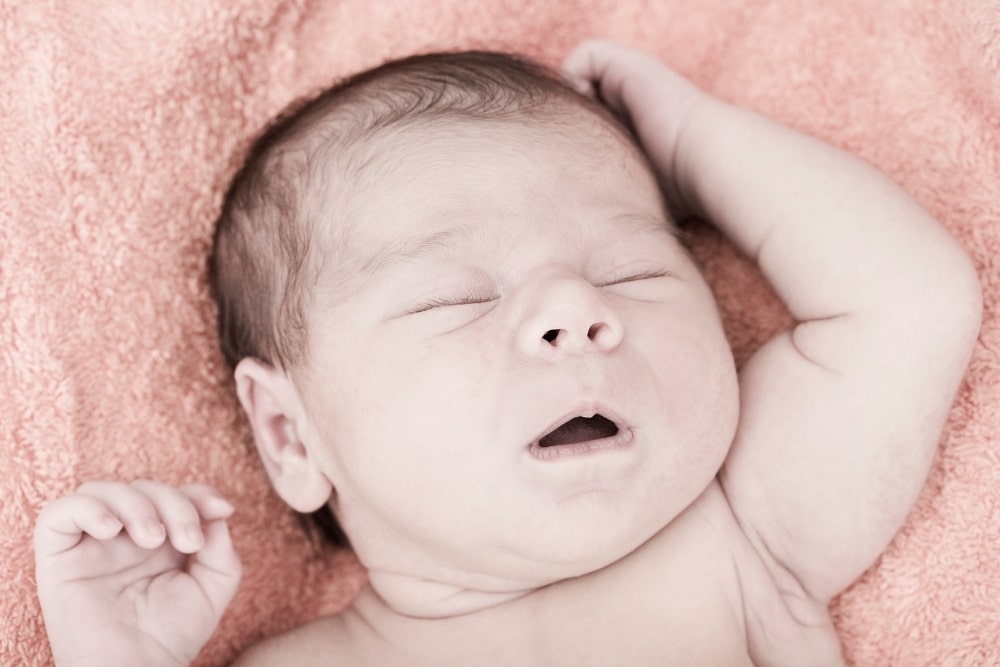
The third potential outcome of your baby eating honey is they may become sick with Infant Botulism. Babies suffering from Infant Botulism will need to be treated in hospital.
Your baby will be given antitoxins to clear the toxins produced by the Clostridium Botulinum bacteria in the honey.
Infant Botulism can cause breathing difficulties and your baby’s treatment may need to include medical support with their bodily functions, such as assisting them with their breathing.
Treatment will not reverse any paralysis caused by the Botulism but it will prevent it from getting any worse. Over time your baby will regain normal strength and control of their muscles but recovery from the paralysis caused by Botulism can take several weeks to improve.
The fourth and worst-case scenario if your baby eats honey is something no parent wants to think about.
FAQs
Can Babies Die From Eating Honey?
In extremely rare cases, babies have died from eating honey. Infant Botulism is treatable if caught in time, that is why it is so important to know what signs to look out for.
However, as the ingested toxic spores can cause paralysis and breathing difficulties, when left untreated babies suffering from Botulism will find it difficult to feed and can struggle to breathe effectively.
The mortality rate for Infant Botulism has been reported as being less than 1%. Although it is rarely fatal, this illness can be severe and dangerous if not treated quickly in a hospital.
How Much Honey Is Bad For Babies?
Babies under 12 months of age should not be eating any honey at all. If your baby has eaten honey by accident, their risk of getting Infant Botulism increases with each mouthful.
A small lick of honey from a spoon may seem harmless, just as a Honey Nut Cheerio or two may seem like no big deal. The more honey your baby eats, the greater the risk of them ingesting toxic spores.
View in gallery
However, although unlikely, even a tiny amount of honey can cause Infant Botulism. The spores multiply in the intestines and this process releases the toxins that cause the disease.
Even if your baby only eats a tiny bit of contaminated honey, the multiplication process means the toxic spores can still result in your baby becoming seriously unwell. Any amount of honey has the potential to make your baby sick, it is best to avoid it altogether until your baby is one.
Can My Baby Eat Cooked Honey?
A bit of honey drizzled on your roasted carrots may seem like a great way to encourage your baby to eat their veggies. Unfortunately, even when cooked honey can be dangerous for babies.
C Botulinum spores can only be destroyed in extremely high temperatures, unlike many other bacteria that can be killed at regular cooking temperatures.
As the toxic spores in honey can only be killed at extremely high temperatures, it is best to err on the side of caution and avoid feeding your baby honey, even when it has been cooked,
Can Raw or Regular Honey Cause Infant Botulism?
Honey has several vitamins, minerals, and antioxidants and also helps support healing and digestion. Giving your baby honey may seem like a good idea because of its many reported health benefits. However, giving a baby honey has the potential to cause more harm than good.
Raw honey is not as highly processed as regular honey, it is usually just strained once and bottled.
The minimal filtration of raw honey keeps the majority of its health benefits intact but also doesn’t remove the C. Botulinum spores that can cause Infant Botulism.
Regular honey that you buy in the store is more highly processed than raw honey. Regular honey can go through a number of filters and be heated several times.
This process is called pasteurization and it breaks down the beneficial enzymes as well as removing pollen from the honey.
How and When To Give Baby Honey?
View in gallery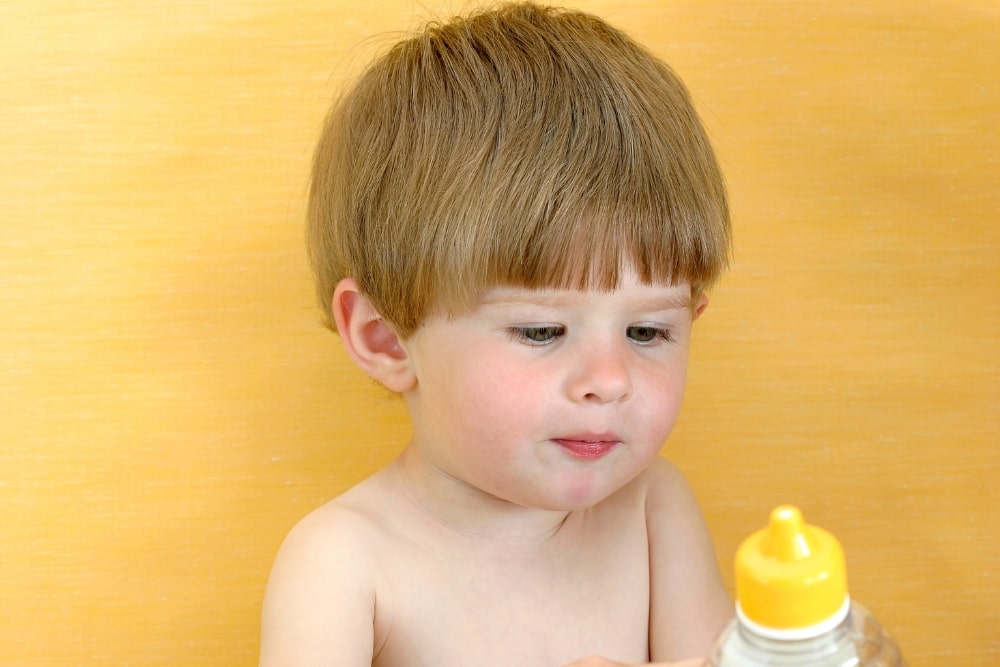
Your baby doesn’t need to avoid honey forever. As your baby grows and their digestive and immune system become more developed, you will be able to introduce honey into their diet.
By 12 months of age, your baby’s digestive tract will have developed enough to prevent any ingested C. Botulinum spores from multiplying.
It is the multiplication process that causes the Infant Botulism disease to take hold, that is why it is advised to wait until your baby’s digestive system has matured before letting them eat honey.
As honey is an allergen, it is best to slowly introduce it into your baby’s diet. To safely give your one-year-old honey, try offering them a small amount at a time and monitor them closely, keeping an eye out for any signs of an allergic reaction.
Although honey has several health benefits, it does sweeten food and you don’t want to give your baby an unnecessary sweet tooth.
The Final Thought
If you are reading this because your baby accidentally ate honey, this article has hopefully answered all of your burning questions. Giving honey to babies under 12 months of age is strongly discouraged due to the risk of Infant Botulism.
We have highlighted everything you need to know if your child develops symptoms of Infant Botulism and explained why it is not safe to feed honey to young babies.
Whether your baby has eaten a whole jar of honey or just had a tiny little lick, you need to watch them closely. If you are concerned your baby may have Infant Botulism seek medical assistance immediately.
If you are just starting on your weaning journey you may be wondering what other foods your baby can and can not eat. If so why not check out Can babies eat rice? or Is Kelp seaweed safe for babies to eat?

